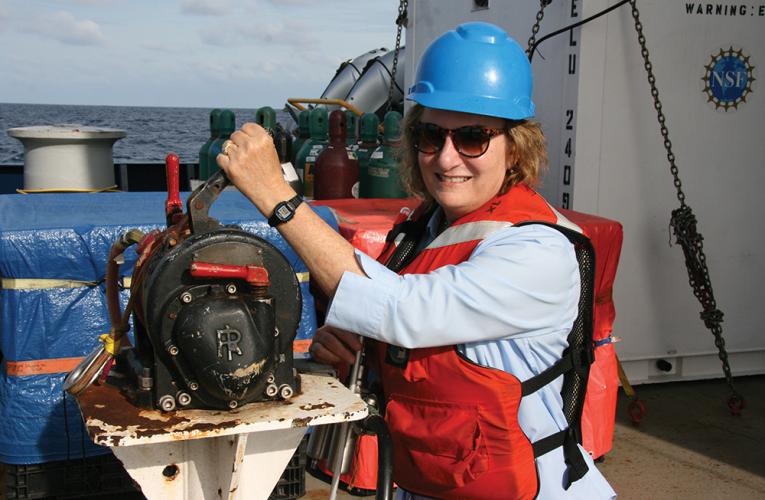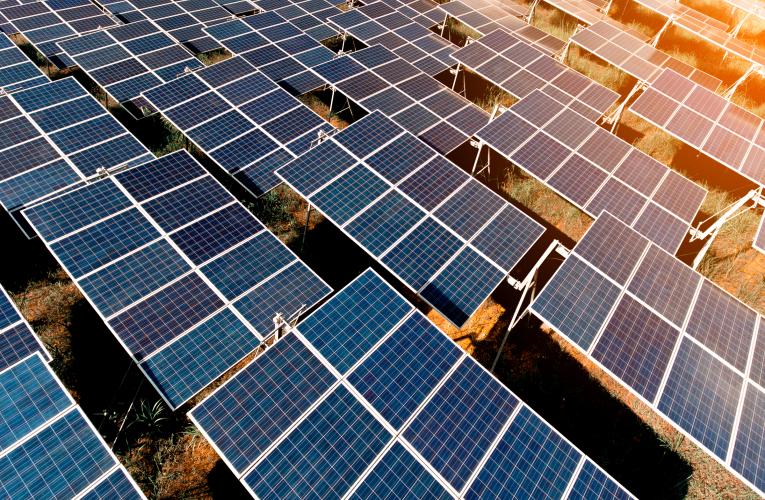NOTICE: THIS major IS NOT AVAILABLE TO INCOMING STUDENTS
The information on this page applies to students who matriculated in fall 2020 or prior. Beginning fall 2021, the majors and minor in Earth & Ocean Sciences were replaced by the majors and minor in Earth & Climate Sciences. If you have questions, please contact Brian McAdoo, Director of Undergraduate Studies.
Focus of Study
Earth and Ocean Sciences (EOS) majors study the Earth as a dynamic system influenced by oceans, atmosphere, earth and living things. Through coursework, lab work and field study, they gain a deeper understanding of the complex interplay of physical forces that shape our planet; they also receive hands-on training in the methods and techniques scientists use to study these forces.
Within this rigorous framework, students have ample opportunity for specialization in a field or on a topic of interest to them. Many students do independent research and study projects in their field of specialty to fulfill Graduation with Distinction honors. More than 40% of our students are double majors.
Program Hallmarks
Nature is our classroom, and the laboratory our proving grounds for analytical and quantitative skills, so expect to spend a fair amount of your time learning and exploring outside the classroom. Many classes incorporate local field trips into their curricula, and each year we also offer field courses to Hawaii, Yellowstone, the Bahamas, Ireland or other fascinating locations.
Small class sizes, a tight-knit community of students and faculty who share your passion for learning, and lots of one-on-one time with your professors are also things you can expect.
Your Future
Earth and Ocean Sciences prepares students for careers as climatologists, data analysts, environmental consultants, geologists, hydrologists, nature resource managers, environmental lawyers, marine biologists, oceanographers, professors and teachers, and many other fields.
You’ll find our alums at the U.S. Department of Energy, the U.S. Environmental Protection Agency and NOAA; at law firms, nonprofit organizations, investment firms, hospitals and global heath institutions; and in the energy sector, higher education, the mineral exploitation industry, K-12 education, and ecotourism, as well as in many other industries or sectors.
B.S. in Earth & Ocean Sciences
The B.S. in Earth and Ocean Sciences is designed for students who plan to pursue advanced studies and careers in the physical sciences. If you want to be part of the community that provides the data and knowledge future environmental policy will be based on, this is the path for you.
Prerequisites
- EOS 101 and EOS 102
- Chemistry 21L and 22L or 101L and 210DL or any of the above plus 210DL
- Math 111 and 112L or equivalent
- Physics 141L or equivalent
- Biology 202L
Degree Requirements (Select 4 from the following 5 options)
- EOS 201 The Solid Earth
- EOS 202 Atmosphere and Ocean Dynamics
- EOS 203S The Surface of the Earth
- EOS 204 The Evolving Earth and Life
- EOS 365 Introduction to Weather and Climate
Electives
- Four additional Earth and Ocean Sciences courses at the 200 level or above, including one field-oriented class.
- Up to two courses from a related field (Biology, Chemistry, Environment, Evolutionary Anthropology, Mathematics, Physics or Statistics) may be substituted with the approval of the Director of Undergraduate Studies.
B.S. Major Requirements Worksheet
A.B. in Earth & Ocean Sciences
The A.B. in Earth and Ocean Sciences blends science and policy to prepare students to be science-literate decision-makers. Students seeking a dual-major that will give them a solid foundation for careers in business, human health or public service, are well served by this flexible curriculum.
Co-requisites
Choose one course from two of the subject areas (no more than one course per subject area)
Gateway Course
Required Major Requirements
- Any six EOS courses, of which five must be 200-level or higher
Electives
-
Three additional 200-level or higher courses in either Earth and Ocean Sciences or related fields (e.g., Biology, Environment, Evolutionary Anthropology, Math, Physics or Statistics), as approved by the Director of Undergraduate Studies.
A.B. Major Requirements Worksheet
Minor
The minor in Earth and Ocean Sciences is a great science complement to a primary major in the arts and humanities or another science. Our minors are often biology, public policy, environmental science, cultural anthropology, or evolutionary anthropology majors.
- EOS 101 The Dynamic Earth or EOS 102 The Dynamic Ocean
- Any four additional Earth and Ocean Sciences courses, of which three must be 200-level or higher
Quick Links





